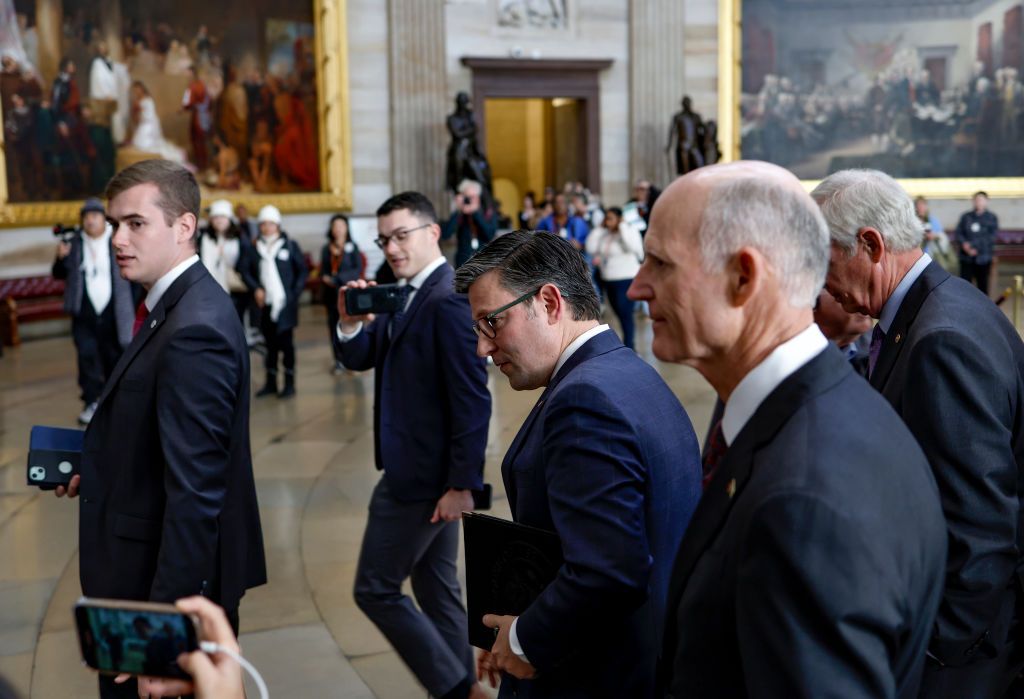The Republican House Majority Leader Steve Scalise announced on April 11 that negotiations are ongoing between U.S. House Speaker Mike Johnson and the White House regarding a Ukraine aid funding package. Scalise mentioned that Speaker Johnson’s proposed package deviates from the $60 billion Ukraine aid package approved by the Senate on Feb. 13, and includes several Republican demands. Details of the concessions that House Democrats and the Biden administration would have to make in order for the aid funding to be brought to the House floor for a vote were not provided. Johnson has considered various options, such as tying aid funding to the lifting of a pause on approvals for Liquefied Natural Gas exports, splitting Ukraine and Israel aid into two bills, providing aid to Ukraine as a loan, and using seized Russian assets to supplement funding.
There has been dissent within the Republican Party regarding the Ukraine aid funding, with far-right House Republicans initially blocking it due to disagreements over border security. Congresswoman Marjorie Taylor Greene even filed a motion threatening to oust Speaker Johnson from his position if he brought the proposed Ukraine aid to the House floor for a vote. Republican Congressman Don Bacon stated that a vote to remove Johnson would be likely if Ukraine aid was brought to the floor, and there was a possibility of its success. Johnson will meet with former President Donald Trump on April 12 to discuss Trump’s support for the aid funding package. Trump reportedly advised members of his party in January not to pass legislation on the border, as he plans to focus on that issue in the general election.
While initially rejecting the Senate-approved aid bill due to its lack of addressing the crisis at the southern border, Speaker Johnson has signaled his intention to eventually bring forward a funding package for a vote. Ukrainian President Volodymyr Zelensky has been urging Congress to pass a funding bill, warning that Ukraine stands to lose the war against Russia if the U.S. Congress does not approve military aid. Zelensky’s plea comes amidst increasing weapons and ammunition shortages in Ukraine. Johnson had promised earlier to hold a vote on aid for Ukraine after the Easter holiday, but top Republicans contradicted this timeline, suggesting that the aid vote would be weeks away. The pressure is mounting on Johnson to navigate through the conflicting demands and opinions within the Republican Party to ensure the passage of much-needed aid to Ukraine.
The negotiations surrounding the Ukraine aid funding package highlight the complexities and challenges faced by lawmakers in addressing the crisis in Ukraine while balancing domestic priorities and political considerations. The deliberations between Speaker Johnson, the White House, and Republican members underscore the various strategies being considered to secure the necessary funding for Ukraine without jeopardizing other critical issues. The involvement of former President Trump in discussions regarding the aid package reflects the influence of key figures within the Republican Party and their impact on decision-making processes. The threat of ousting Speaker Johnson from his position demonstrates the internal divisions within the party and the pressure faced by leaders to navigate through these conflicts effectively.
The ongoing crisis in Ukraine, coupled with the urgent need for military aid to combat Russian aggression, adds a sense of urgency to the negotiations surrounding the funding package. Ukrainian President Zelensky’s warnings about the consequences of a lack of support from the U.S. Congress underscore the critical nature of timely and sufficient assistance to Ukraine. The potential implications of failing to pass the aid funding bill on the outcome of the conflict in Ukraine highlight the high stakes involved in these political deliberations. The evolving situation and shifting dynamics within the Republican Party further complicate the path to reaching a consensus on the aid package, emphasizing the challenges faced by lawmakers as they seek to provide necessary support to Ukraine while addressing internal divisions and external pressures.















